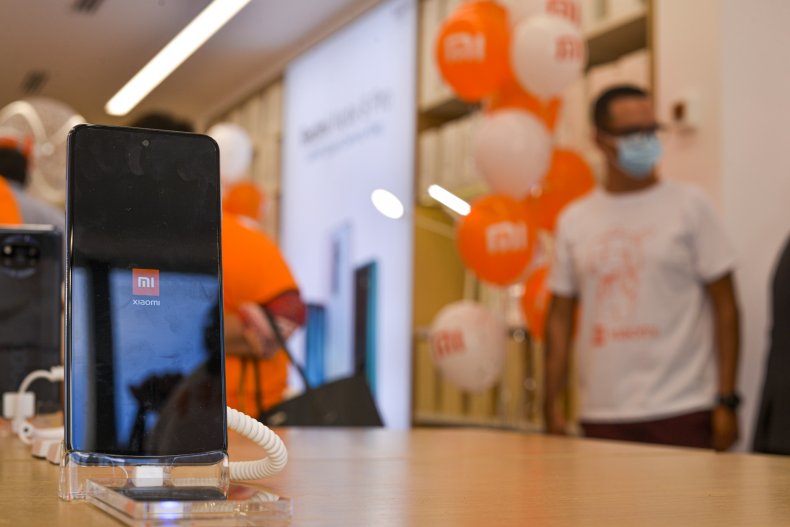Xiaomi, the second biggest seller of smartphones in the world, reportedly installed content-filtering features on its devices, according to results of an investigation by Lithuania's National Cyber Security Center, the Associated Press reported.
The center is now cautioning people against using phones from Xiaomi and another investigated brand, Huawei, citing cybersecurity and freedom of expression concerns.
The investigation determined that phones from Beijing-based Xiaomi filter content for 449 keywords or keyword groups in Chinese characters. It is possible for additional words and groups of words in Latin characters to be added to the list, the center said.
A report released Tuesday said that apps on the phones are sent updated lists of words and phrases that they are capable of blocking, the AP said. These include "Free Tibet," "Voice of America," "Democratic Movement" and "Long Live Taiwan Independence."
While the filter feature was not activated or actively censoring any of the phones inspected by the Lithuanian center, the group warned that it could be enabled at any time.
For more reporting from the Associated Press, see below.

A Huawei spokesperson in Lithuania denied the allegations.
Xiaomi denied its phones could be used to censor or posed privacy risks, saying they complied with the European Union's stringent privacy regulations.
"Xiaomi's devices do not censor communications to or from its users," the company said in a statement. "Xiaomi has never and will never restrict or block any personal behaviors of our smartphone users, such as searching, calling, web browsing or the use of third-party communication software. Xiaomi fully respects and protects the legal rights of all users."
The cybersecurity center, which is a Defense Ministry agency, also investigated phones made by another Chinese company, OnePlus, but found no problems.
"We strongly recommend that state and public institutions not use those devices and plan to initiate legislation which regulates acquiring certain devices for the ministries and various state agencies," Deputy Defense Minister Margiris Abukevicius said Wednesday.
More than 200 public authorities have purchased such phones, and over 4,500 phones are in use, "which, in our opinion, increases the risks," Abukevicius said. He didn't specify the makes of all the phones.
The center's investigation, released Tuesday, was done "to ensure the safe use of 5G mobile devices sold in our country and the software they contain," he said.
Also, ordinary "people should also know what's inside these phones, about the certain software and consider safety before making their decisions," the minister said.
Xiaomi, known for its value-for-money devices, became the world's No. 2 smartphone maker by sales this year, trailing only Samsung. The company was put on a U.S. Defense Department blacklist in the last few days of the Trump administration, which accused it of links to China's military. It was later removed after suing the U.S. government and denies having any links with China's People's Liberation Army.
The move comes amid tensions between Lithuania and China.
Earlier this month, Lithuania recalled its ambassador to China following the Baltic country's decision in July to allow Taiwan to open an office in its capital under its own name. In August, China recalled its ambassador to Lithuania and told the Baltic nation to "immediately rectify its wrong decision."
China says Taiwan is part of its territory and doesn't have the right to diplomatic recognition, although the island maintains informal ties with all major nations through trade offices, including in the United States and Japan. Chinese pressure has reduced Taiwan's formal diplomatic allies to just 15.
Taiwan and Lithuania agreed in July that the office in the capital, Vilnius, set to open this fall, will bear the name Taiwan rather than Chinese Taipei—a term often used in other countries in order not to offend Beijing. On Wednesday, Lithuania said it was sending another 236,000 COVID-19 vaccines to Taiwan.

"Smartphone" - Google News
September 22, 2021 at 11:01PM
https://ift.tt/2XHUGss
Xiaomi, Second Biggest Smartphone Seller, Reportedly Has Content Filter on Devices - Newsweek
"Smartphone" - Google News
https://ift.tt/2QXWyGT
https://ift.tt/2KSW0PQ
Bagikan Berita Ini














0 Response to "Xiaomi, Second Biggest Smartphone Seller, Reportedly Has Content Filter on Devices - Newsweek"
Post a Comment